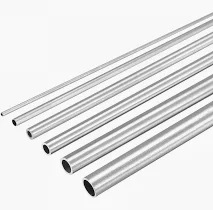
Understanding Automotive Plastic Parts Suppliers
In the modern automotive industry, the role of suppliers of plastic parts has grown exponentially due to the advancements in technology and the demand for lightweight, durable materials
. Plastic components are essential in various automotive applications, ranging from exterior panels to interior fittings, and they offer advantages such as corrosion resistance, lower weight, and design flexibility.Automotive plastic parts suppliers specialize in manufacturing and providing a wide range of components made from different types of plastics. These materials include polycarbonate, polypropylene, and polyethylene, among others. Each type of plastic has unique properties that make it suitable for specific applications within a vehicle. For instance, polycarbonate is often used in windows and light covers because of its excellent impact resistance and clarity.
The automotive industry increasingly focuses on sustainability, prompting suppliers to innovate and adapt their manufacturing processes. Many suppliers now prioritize using recycled materials and developing bio-based plastics. These efforts help to reduce the environmental impact of automotive production and meet the growing consumer expectations for eco-friendly vehicles. By utilizing recycled plastics, manufacturers can decrease waste and lower their carbon footprint while still producing high-quality parts.

Supplier relationships are crucial in the automotive sector, where collaboration between manufacturers, design engineers, and suppliers can lead to improved product development and cost efficiency. Trust and communication are key factors in these relationships, as they directly affect the production timeline and overall quality of the parts provided. Suppliers need to adhere strictly to quality standards, such as ISO/TS 16949, to ensure that the components meet the automotive industry's rigorous requirements.
Another significant trend in the automotive plastic parts supply chain is the integration of advanced manufacturing technologies. Techniques like 3D printing and injection molding have transformed how products are designed and produced. 3D printing, for instance, allows for rapid prototyping, enabling suppliers to quickly create and test new designs, thus shortening the time to market.
As the automotive landscape continues to evolve with the rise of electric vehicles (EVs) and autonomous driving technology, the demand for innovative plastic parts suppliers is likely to increase. These suppliers will need to adapt to new challenges and opportunities, including the development of lightweight components that enhance energy efficiency and the creation of smart interiors that integrate advanced technology seamlessly.
In conclusion, automotive plastic parts suppliers play a pivotal role in the evolution of vehicle manufacturing. Their ability to innovate, adapt, and maintain high-quality standards ensures that the automotive industry can continue to produce vehicles that are not only efficient and reliable but also sustainable and cutting-edge in design. This sector will undoubtedly remain a vital part of the automotive supply chain as the industry advances into the future.